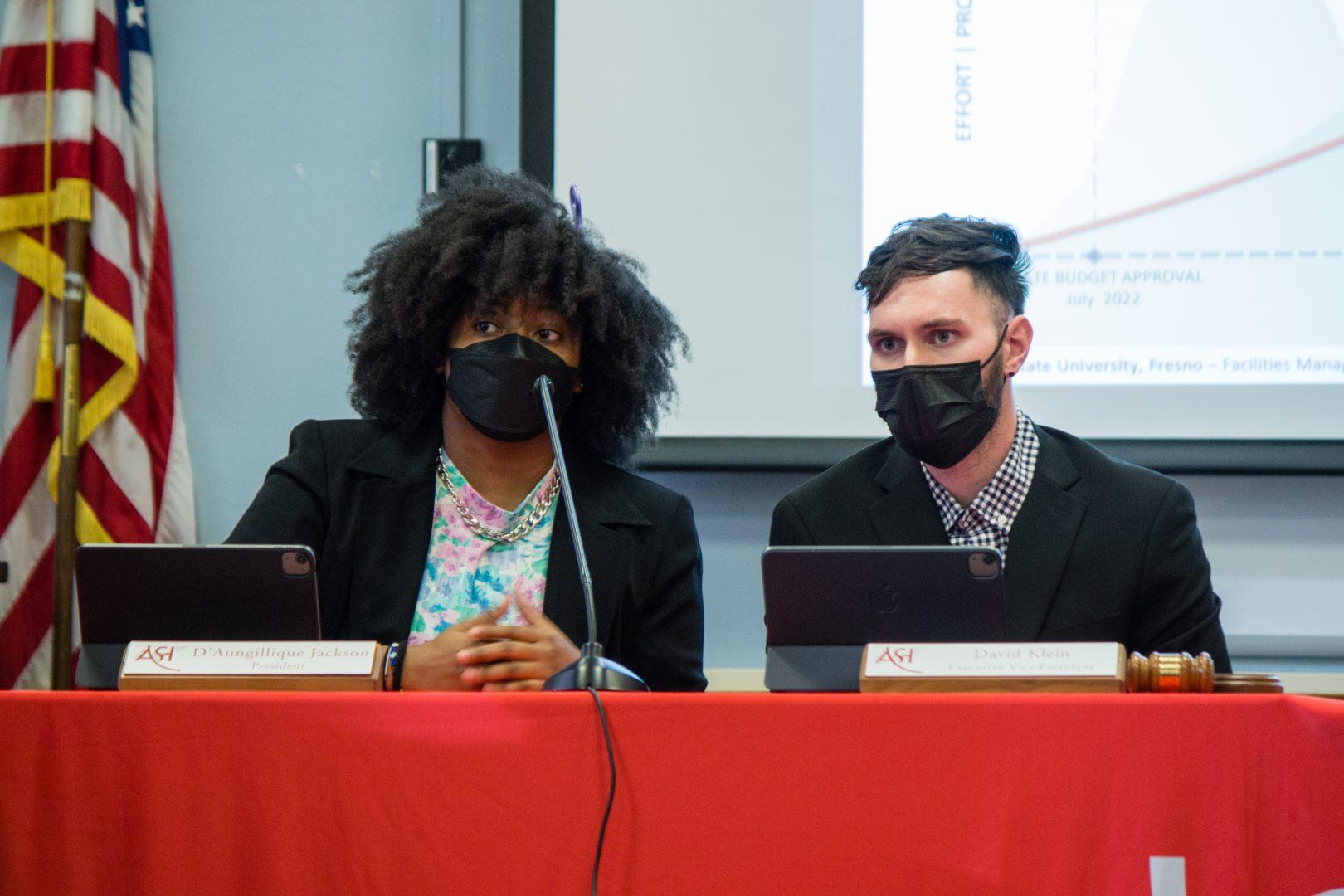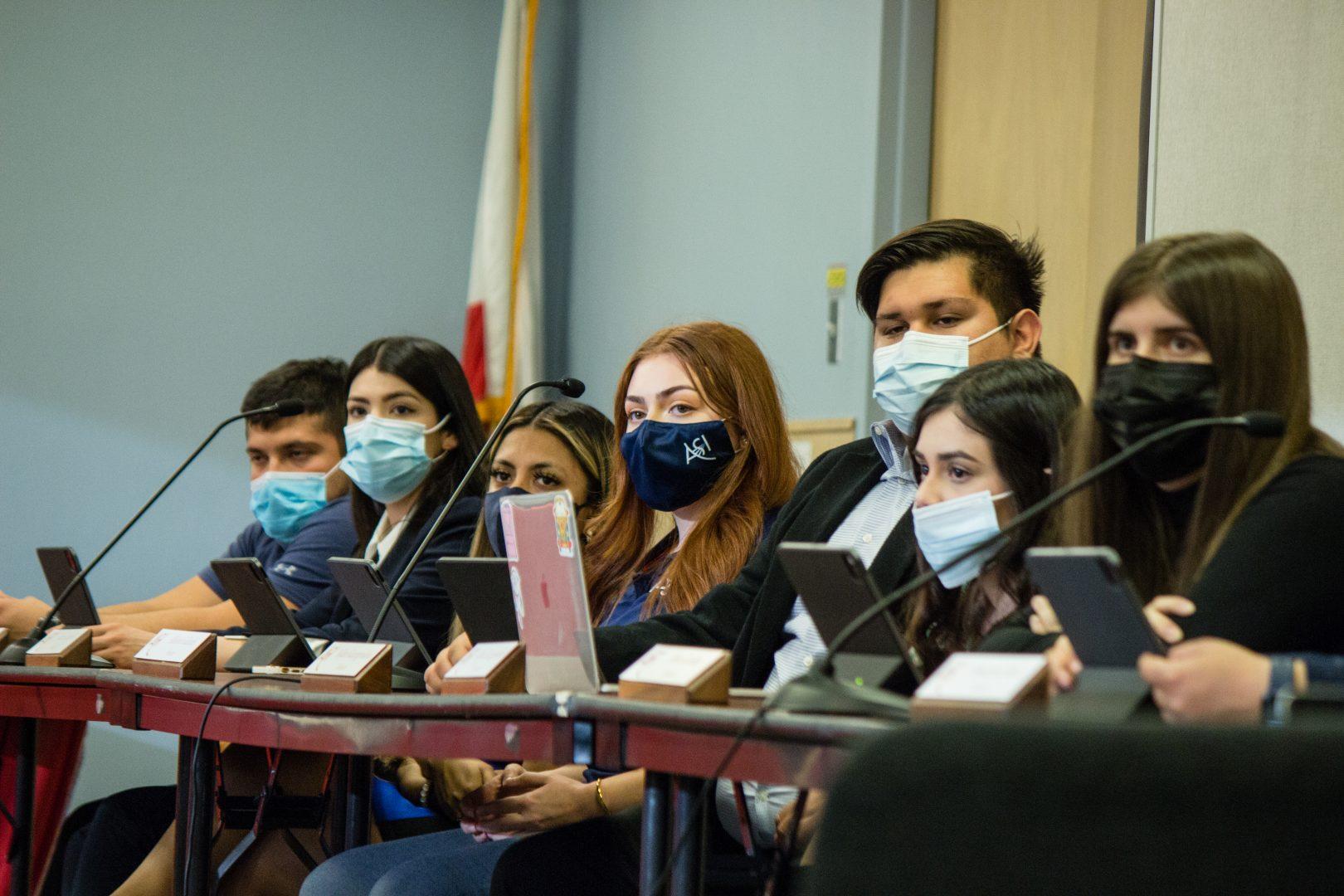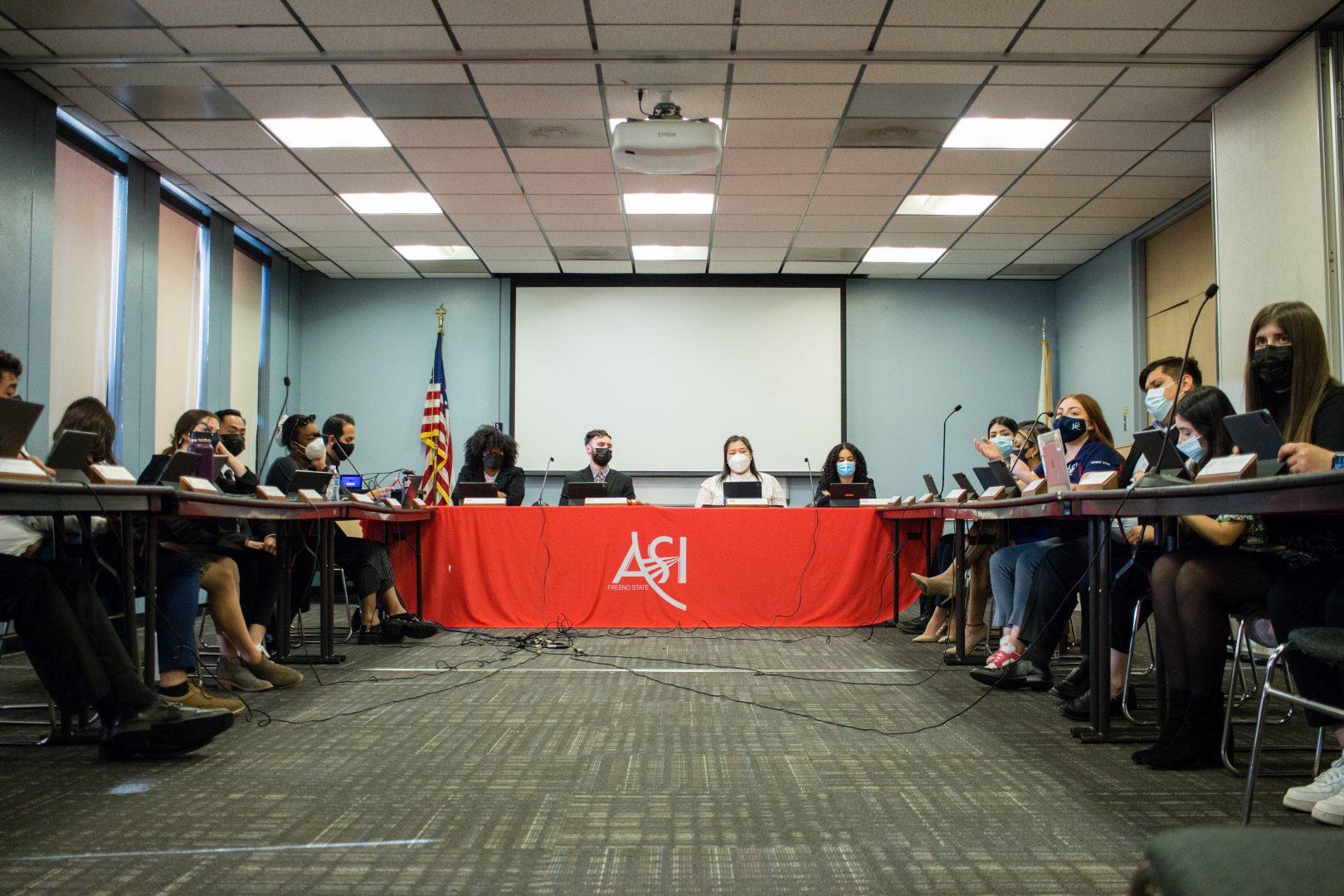Fresno State Academic Student Incorporated (ASI) discussed creating new low-cost residence dorms, rising tuition costs and teacher ratings during the March 9 senate meeting.
Low-Cost Housing
Tinnah Medina, associate vice president of facilities management, announced the planning for a new low-cost housing complex with a target completion year of 2025 at an estimated cost of $50 million.
Fresno State received a grant that is expected to cover approximately $35 million of the total construction cost. Fresno State student housing will cover the rest.
In order to build the project, Cedar Hall, which currently houses 50 students, will have to be demolished to make way for the new facility, as well as the grass fields west and east of Cedar Hall.
The new construction is planned to be up to six-stories tall, house 225 students and be modeled after apartment-style units, with each unit having its own kitchen and private bathrooms. The available dorm options are one-bedroom, two-bedroom and four-bedroom shared apartment units.
Medina admitted that no new parking would be created in anticipation of the new housing project, which could impact the availability of the P27 dormitory parking to both students living on and off-campus.
Vice President of External Affairs Caroline Alvarez worried that the new construction project would displace students currently living in Cedar Hall, as the project would not be completed until 2025.
Administration and Finance Vice President Deborah Adishian-Astone assured the senate that no student would be displaced until the actual budget and planning for the project is finalized, which is expected to take anywhere from a year to two years.
“We don’t know exactly, but we would not demolish that building,until we knew absolutely what the schedule was and make sure that we have everybody accommodated so no one will be displaced,” Adishian-Astone said.
The project was initially designed to be part of the 2022-2023 funding cycle, however, the funding cycle has yet to be approved until July 2022. The project is expected to get approval from the board of trustees in November 2022.
Adishian-Astone noted that the CSU Department of Finance recently made adjustments for project expenditure priorities affecting the low-cost housing project’s timeline of completion.
“We are still optimistic and hopeful that our project, if it is not funded this year in the 2021-2022 cycle, will be a high priority for 2022-2023 because it is a three year grant cycle program,” Adishian-Astone said.

Changes To Tuition
Following the housing project presentation, Adishian-Astone discussed with the senate the increase in mandatory student fees, which were approved the previous school year.
The CSU mandatory student fees for Fresno State will increase to $1,209 for the upcoming 2022-2023 semester, alongside the approved fee increase anticipation of the Resnick Student Union (RSU), which is planned to open during the fall 2022 semester.
Students will see a student fee increase of $149 each semester, raising the total student fees to $538 per year following the opening of the RSU.
The current debt service for the RSU is $3.9 million per year with an estimated operating cost of $2.4 million as well as a $3 inflationary increase per year.
ASI received an additional $14 toward operations cost, which originally went towards the ASI financial aid fund, increasing the ASI operational budget to approximately $1 million, according to Adishian-Astone.
She acknowledged that the transferring of the $14 fee to ASI operational cost will impact several services across the university.
“It will impact their amount and total that they have, but they have looked at their fund balances, the amount they have available and kind of what their needs are each year,” Adishian-Astone said.
Teacher Ratings
Professor of French and member of the Academic Senate subcommittee Tara P. Hashemi gave a short presentation on the importance of the student rating system.
Hashemi sought to raise awareness about the relatively low participation of students in filling out the questionnaire.
“I think it’s very important to have that student perspective…on this committee, because it’s literally called student ratings, not faculty ratings,” Hashemi said.
A common sentiment shared by ASI was that the student rating system generally did not benefit the students, as they felt the ratings contributed to little or no changes at the university.
Senator for the College of Health and Human Services Alison Garibay recommended that students who want their voices heard go to the Rate My Professor website.
“I would go to Rate My Professor because these [ratings] are not going to administration. This [questionnaire] is not going to make a change. That’s what I was told,” Garibay said.
Hashemi clarified that in addition to the professor, the chairman of the department, upper administration and the university provost receive a copy of the ratings for the professor and course.
Senator of Diversity, Equity & Inclusion Karen Carrillo called the student rating system a “waste of time” and questioned the effectiveness of the administration to address issues presented in the ratings.
“I’ve heard enough students express how they have gone to upper administration and, during the semester, they discuss the problems they’re having about their professor, whether it is feeling discriminated [against], whether it is feeling belittled, whether it’s anything like that and nothing is getting done,” Carrillo said.
Hashemi acknowledged that when it comes to tenured professors, very little to nothing can be done due to the protections afforded to them by their tenure status. However, student ratings do affect tenure track professors.
“It depends on the rank of the professor. I am not going to deny what you are saying if it is a tenure professor. If it’s a tenure track professor that matters…. As far as anything punitive, I don’t think anything could happen,” Hashemi said.

CORRECTION: March 15, 2022
A previous version of the story incorrectly wrote: “Tinnah Medina, associate vice president of facilities management, announced the planning for a new low-cost housing complex with a target completion year of 2025 at an estimated cost of $500 million.”
The low-cost housing has an estimated cost of $50 million, not $500 million. The Collegian regrets this error.




